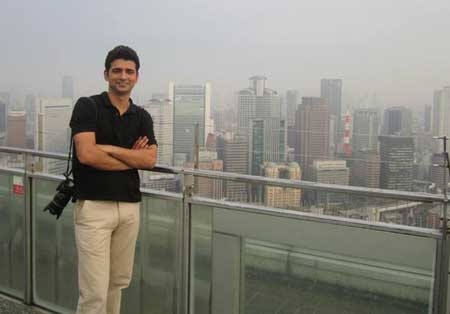Once a largely rural country, Kazakhstan has undergone a humongous demographic change in the last decade which has changed the cultural landscape of the country. But, as SAMEER YASIR finds out, a growing dissent is brewing within the country!

A cold wind swept the tarmac at Almaty International Airport as the passengers disembarked from Air Astana aircraft. I recalled Kazakhstan President, Nursultan Nazarbayev’s speech at the opening ceremony of new capital in Astana where he said there was no problem with the hurricane winds that swept through the city. His hat was blown away the moment he mentioned winds in his speech and the people at the function were thrown into gales of laughter.
The modern day Almaty looks familiar to India’s northern state of Punjab. Most youth have moved out of their country and migrants from China and four central Asian counties have made Almaty their home. The heavy migration has left a deep mark on the local culture and language. Kazak is the national language but most people speak Russian. Geographically, it is a vast country as big as Western Europe, which makes it the ninth-largest country in the world. This country once used to be home to Baikonur Cosmodrome from which Yuri Gagarin’s first orbital flight was launched in 1961. The centre used to be top secret but today it is a tourist destination.
The Chinese Influence
According to a recent estimate by the Department of Sociology, University of Al-Farabi, Almaty, there were more than 300,000 Chinese people in Kazakhstan in 2011. In a population of 15,522,373, this figure is alarming. There is a Chinese market, the Barakholka Bazaar, famous hangout among the young Chinese and a Mandarin newspaper, Hasakesitan Huaqiao Bao. Just outside the international Airport on Mailin Street, huge Chinese’s restaurants have sprung up. There is a growing fear among the scholars of international politics that Kazakhstan is going to be the Iraq of Central Asia. Whether it is oil, gas or any other natural resources, Kazakhstan is a blessed country. So, as was the case with Iraq and Libya, Americans are here too. What adds to these fears is a fact that Kazakhstan is the only central Asian country that exports oil to China and the Chinese have built a 1000-km pipeline to ensure the supply. The nation has now set an ambitious target of being in the world’s top five oil exporter countries. Although there was migration in early part of the century from China during the Qing Dynasty, the modern immigration wave started in early 1990’s.
A Growing Discontent
The country shares its border with Russia, Kyrgyzstan, Turkmenistan, Uzbekistan and China. My friend, Aliya Akatayeva, a scholar, told me about a simmering discontent among the people against the president. Although Nazarbayev and his one party Parliament have been in power since 1989, the 70-year-old vies with his Uzbek counterpart, Islam Karimov, for being the longest serving leader in countries that once made the Soviet Union.
A signature campaign was held in December 2011 in which more than 100,000 people asked for the referendum to be held in Kazakhstan. President Nazarbayev is pushing his daughter, Dariga, to succeed him. She is an opera singer, a mezzo soprano. However, people are fed up with Nazarbayev policies, a journalist friend tells me. Despite the discontent, the country achieved which no other state formed from the ruins of the USSR could. Kazakhstan was a largely rural country with small but politically powerful urban elite towards the end of last century. However, a large and growing middleclass has emerged that is increasingly demanding its rights. Oil has been the engine of this change but Kazakhstan is now working hard to diversify the sources of its wealth.
The Cultural Battle
Despite being a Muslim majority state, the foundation of modern Kazakhstan was laid on the principle of equality and cultural plurality. The Russian culture has, however, left deep imprint. Be it Vodka or discotheques, the symbols of Russia are visible everywhere. There are 600,000 registered drug addicts in the country. One fine evening, I sat in Altin Bidai, a restaurant, mostly frequented by the young. It has a beautiful air terrace from where one gets to see a beautiful view of the city. People visit Altin Bidai to discuss politics, art, literature; almost everything happening in Almaty.
Peaceful Monster
As I drove back towards the airport, my driver, Timur Kudabaev, a lean, tall man in his forties, told me that Kazakhstan was harvesting the peace dividends. “We never poke our nose in anyone’s affairs. It would always remain the same.” But, as I bid goodbye to Almaty, I wondered whether that was possible for a resourceful country eyed by powerful states. With modern China and Russia in Kazakhstan’s neighborhood, they need not worry about America. These two are enough for a potential conflict to surface.















